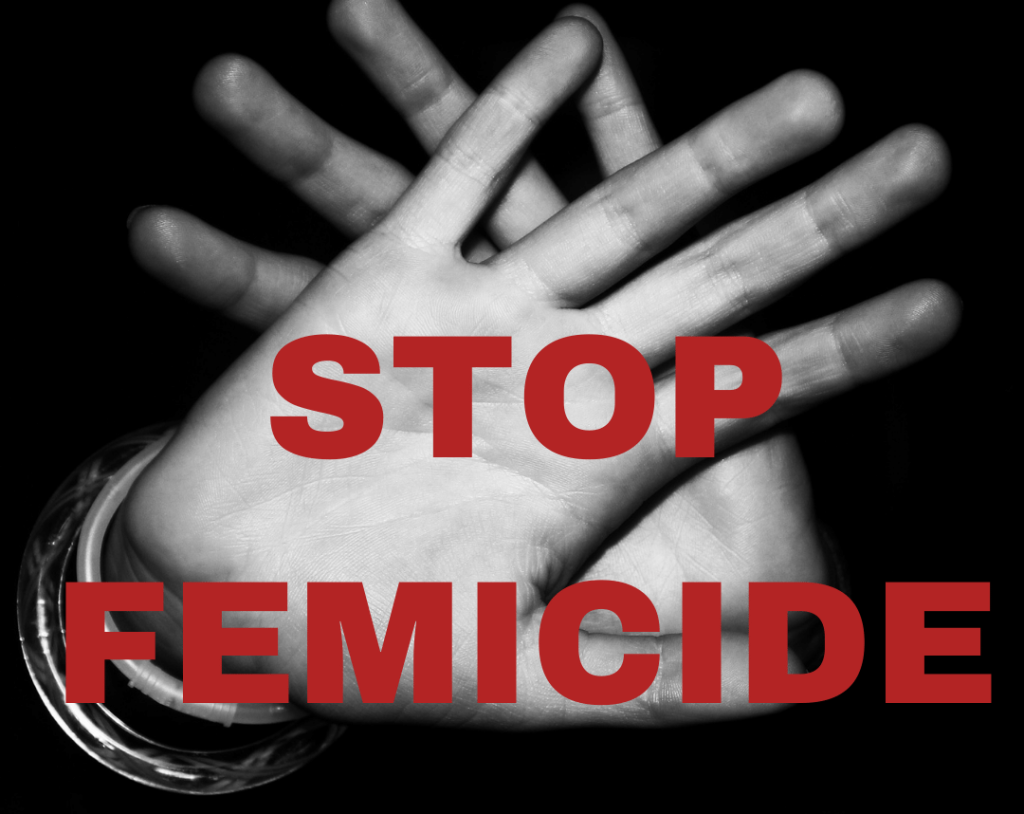The haunting nature of femicide casts a chilling shadow over Ghana, forcing us to confront a harsh and unsettling reality that demands immediate attention. The very essence of our societal fabric is under siege as we grapple with the surge of this insidious and heart-wrenching phenomenon, the merciless and deliberate killing of women by their intimate partners. This dark cloud of gender-based violence has enveloped our beloved country, and the deeply unsettling figures presented by both the Network for Women’s Rights in Ghana (NETRIGHT) and the Gender Centre for Empowering Development (GenCED) serve as a reminder of the pressing and imperative need for decisive action. This is a clarion call that echoes for all stakeholders, ranging from governmental bodies and law enforcement agencies to non-state actors and compassionate citizens to unite in eradicating this menace and forging an environment of enhanced safety and security for every Ghanaian woman
In the year 2021, the staggering revelation put forth by NETRIGHT that more than 25 women had fallen prey to the clutches of their abusive partners within a mere span of eight months serves as a harsh awakening to our collective consciousness. These women, subjected to unspeakable atrocities that include stabbing, poisoning, shooting, strangulation, bludgeoning, and battering, have tragically transformed into symbols of a crisis that transcends geographical boundaries, societal strata, and economic divisions. This harrowing reality strikes at the very core of our societal norms and values, laying bare the urgent necessity for concerted and coordinated intervention to dismantle the deeply rooted foundations that sustain such acts of gender-based violence.
Also, this alarming escalation of femicide is not an isolated occurrence but rather a pervasive and distressing trend that underscores the fragility of the lives of Ghanaian women across the spectrum of society. The data laid bare by GenCED underscores a deeply unsettling truth, that this crisis knows no bounds, affecting women regardless of their socio-economic backgrounds, geographic locations, or educational attainments. The stark reality painted by these statistics calls for a profound reckoning and a renewed sense of determination to reverse the course of this deeply disturbing act.
In this battle against femicide, our collective mission must extend beyond the mere acknowledgment of the issue. It needs a comprehensive and multifaceted approach that encompasses policy reforms, robust law enforcement mechanisms, community-based initiatives, and a transformation of societal attitudes towards gender dynamics. The government must take center stage as it formulates and enforces stringent laws that denounce and penalise perpetrators of femicide. Law enforcement agencies must be equipped and empowered to handle cases of domestic violence with the gravity they deserve, ensuring swift and impartial justice for the victims.
Now is the time for all stakeholders to heed the call for action. The Act Now campaign launched by NETRIGHT underscores the urgency of the situation. The government must assume a proactive role by enacting comprehensive policies and concrete measures that safeguard the lives of women and children. Law enforcement agencies must rise to the occasion, meticulously investigating and apprehending those responsible for these heinous acts. The Domestic Violence and Victim Support Unit of the Ghana Police, in partnership with the Ministry of Gender, Children, and Social Protection, must spearhead the creation of robust support systems that shield victims and proactively prevent future instances of femicide.

The crisis also compels us to engage in a deeper dialogue about the underlying causes. Mental health authorities must initiate conversations that dig deeper into the psychological roots of such violence, potentially paving the way for preemptive strategies and interventions. Families scarred by these tragedies deserve avenues for healing and support to navigate their unimaginable grief.
Nevertheless, the burden of change does not rest solely on the shoulders of government and institutions. Civic rights advocates, human rights champions, women’s rights groups, civil society organisations and activists, religious organisations must join forces to demand transformation. These stakeholders can amplify the voices of victims and strengthen awareness and tangible action by leveraging their influence and platforms. Each life lost reverberates as a profound loss to the very fabric of our Ghanaian society, and every woman has an inherent right to live without fear or violence.
It is important to reiterate that this grave concern of femicide necessitates an urgent and resolute response from every facet of our nation. It is imperative that we collaboratively cultivate an environment in which women are not merely shielded from harm, but are also empowered to fully realise their potential. The heart-wrenching stories of those who have tragically lost their lives due to femicide demand more than just our empathy, it must compel us to translate our sentiments into concrete actions for change.
As a society united in purpose, we must firmly commit ourselves to the cause of eradicating femicide. This commitment entails the vigorous advocacy for comprehensive policies that address the root causes of this issue. These policies should encompass not only legal measures, but also social and economic support systems that uplift women and provide them with the tools to lead safe and fulfilling lives. Moreover, the fight against femicide desperately needs the establishment of robust support networks. These networks should include accessible avenues for women to seek help, as well as the provision of resources for counselling, legal aid, and shelter. We can ensure that women are not left vulnerable to the tragic outcomes of femicide through these support structures.
An essential aspect of this battle is the imperative for a paradigm shift within our culture. This shift entails challenging and dismantling the harmful attitudes and stereotypes that perpetuate violence against women. It requires a concerted effort to promote gender equality, respect, and a recognition of the inherent worth of every individual, regardless of their gender.
Our united resolve to address femicide demands a multi-pronged and enduring effort. Through championing comprehensive policies, building strong support systems, and nurturing a shift in culture, we can lead the path to a safer and more promising future for all women in Ghana. It is incumbent upon each of us to actively strive for a Ghana where the shadow of femicide no longer looms.


